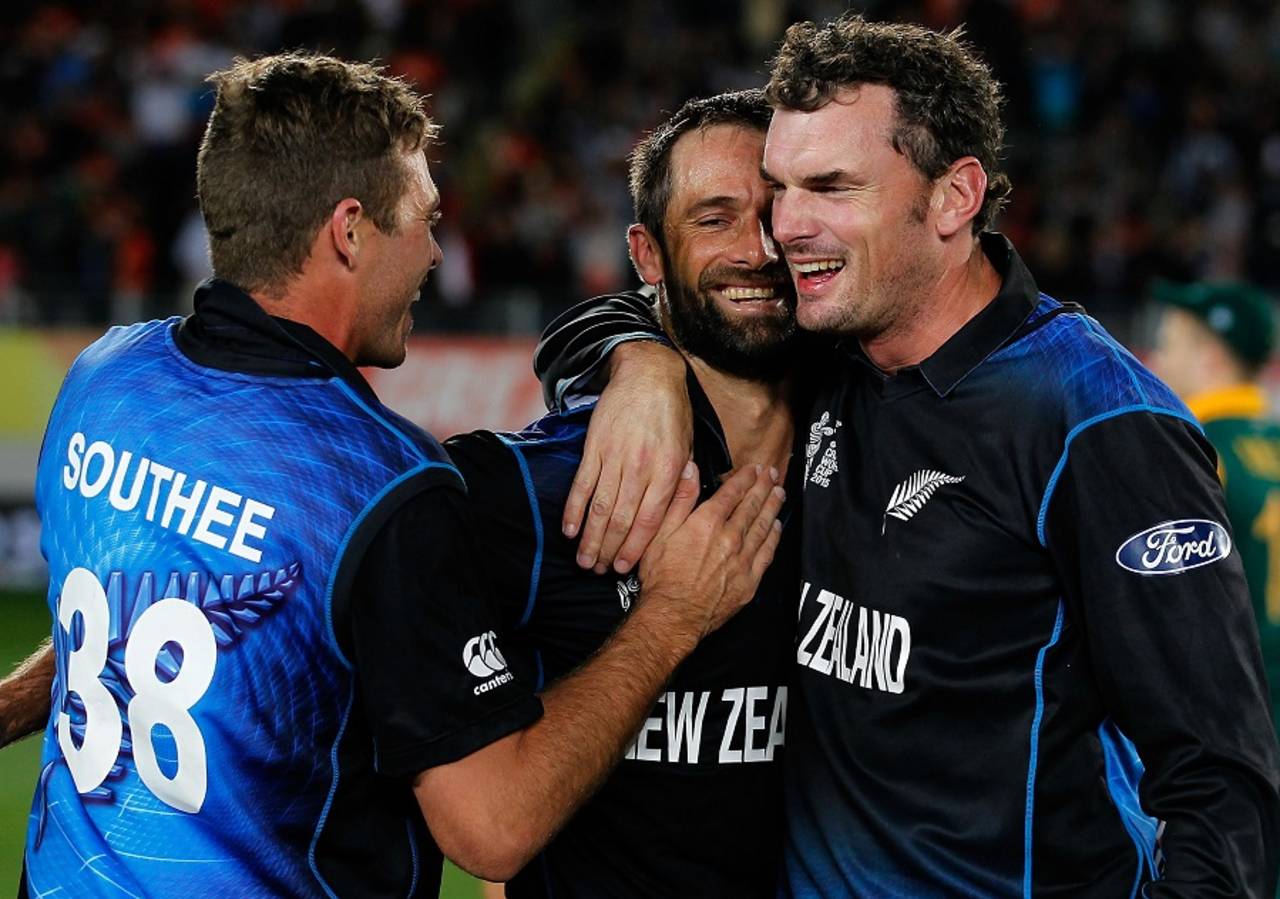Riding the wave
New Zealand exceeded expectations in most departments, and their showing in the World Cup was hugely heartening

Grant Elliott's epic six took New Zealand to their first ever World Cup final • ICC

A limited-overs achievement rarely trumps everything Test-related in a calendar year but Grant Elliott's six against South Africa to take New Zealand to their first World Cup final encapsulated everything that glowed about the hosts' game.Elliott, born in South Africa but a proud bona fide Kiwi, belted Dale Steyn, the world's premier pace bowler, into the stands to triumph with a ball to spare. The wallop secured immortal status, as the team chased 298 in a rain-interrupted game reduced to 43 overs. Elliott even had the grace to stretch out a hand to Steyn who lay prone in the aftermath. "Four-wicket win" seemed the ultimate euphemism.
The Chris Cairns perjury trial, in which the defendant was found not guilty in a British Crown Court, sullied the New Zealand game regardless. The former allrounder always described match-fixing allegations against him as "despicable lies". A host of New Zealand's best from the previous generation - and Brendon McCullum - faced the judicial microscope. Lou Vincent is the only New Zealand player to admit to match-fixing, but the overriding theme was that New Zealanders are as vulnerable as anyone to the practice.

With Vettori's official retirement after a stellar World Cup, 23-year-old Mitchell Santner has emerged as the heir apparent among spinning allrounders. Big bats, smaller boundaries and extensive fielding restrictions hardly created a nurturing environment in his first ODI series, against England, but he persevered.
Brendon McCullum's impending retirement after the Australia home series in February will resonate. If fit, he will become the first of over 2800 Test players to play 100 in succession from debut. Reminiscences will abound. Williamson is the logical replacement as captain and will take the job, provided it does not unduly affect his batting.
Andrew Alderson is cricket writer at New Zealand's Herald on Sunday